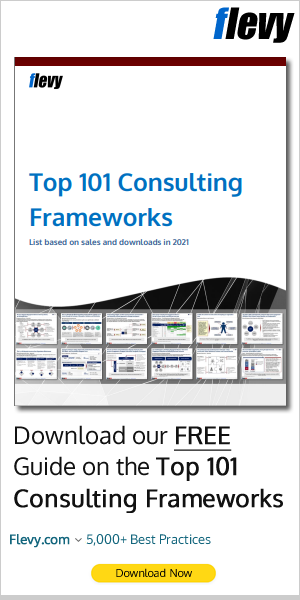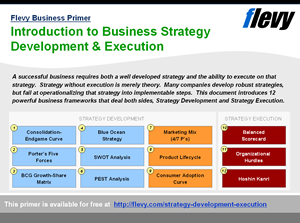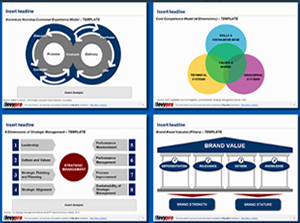Editor's Note: Take a look at our featured best practice, Training Needs Analysis (TNA) (72-slide PowerPoint presentation). Training Needs Analysis (TNA) goes beyond mere employee preferences or superficial surveys. It's a strategic process focused on aligning training with business objectives and bridging performance gaps. This training PowerPoint will provide you with a comprehensive understanding of TNA, [read more]
Why Ongoing Education Is So Important for Career Development
Also, if you are interested in becoming an expert on Human Resource Management (HRM), take a look at Flevy's Human Resource Management (HRM) Frameworks offering here. This is a curated collection of best practice frameworks based on the thought leadership of leading consulting firms, academics, and recognized subject matter experts. By learning and applying these concepts, you can you stay ahead of the curve. Full details here.
* * * *

In any cases, ongoing education will benefit your career long-term, and in several ways.
Resume Expansion and Monetary Rewards
First, there’s an obvious benefit; you’ll get a chance to expand your resume. If you learn a new skill, or if you get certified in a certain area, you’ll be able to add that to your list of credentials and increase your total value as an asset to an organization (or as an independent entrepreneur). In any case, you should be able to make more money. When it comes time to ask for a raise, you’ll have concrete proof that you’ve improved yourself as an asset to the company. And if you’re looking for a new job, you’ll have a bigger, more impressive resume to shop around.
An important principle to understand here is your return on investment (ROI). In other words, how much value are you getting compared to how much time and money you spent on education? This is a common hypothetical exercise run by students considering whether to attend (or return to) college. However, you can run it for almost any opportunity for ongoing education. For example, let’s say it costs $500 and 40 hours of personal time to get certified in a new skill. Does this have the potential to earn you a $5,000 per year raise? If so, it’s probably more than worth it.
Abilities and Responsibilities
Ongoing education also expands your pool of abilities, and may give you more autonomy and control over your personal responsibilities at work. For example, let’s say at work, you do three types of tasks: A, B, and C. You don’t particularly like doing “B” tasks, and you tolerate “A” and “C” tasks. What you’re really interested in are “D” tasks.
Learning a new skill allows you to take on an entirely new category of task—the “D” in this case. When you learn how to do D tasks and prove to your organization that this is valuable, you’ll have the opportunity to take on D tasks and delegate B tasks to someone else. Otherwise, your pool of A, B, and C tasks will shrink overall to accommodate D tasks.
Perfecting your existing skills can also help you here. When you get better at a certain type of task, you’ll be able to complete it more efficiently, and see better results in exchange for your efforts. Depending on the nature of your position, this can help you solidify yourself as an asset to the company or earn more money directly.
Perspective and Cognitive Diversity
Taking classes, spending time with mentors, and getting experience outside your current niche can all improve your perspective and help you achieve diversity of thought. You’ll be able to think about how other organizations operate, rather than exclusively focusing on your own experiences. You’ll learn from a litany of different teachers and leaders, each with different styles and experiences of their own. And ideally, you’ll learn about a wide range of different subjects.
Over time, these unique, varied experiences will help you think in more creative ways, and ultimately help you make better decisions. You’ll be able to incorporate more factors into your brainstorming processes, and see things from more than one angle.
Staving Off Burnout
It’s also important to note the possibilities of staving off burnout with the power of ongoing education. Most people, when confronted with the same mundane routine over and over, eventually find themselves bored and/or exhaustive of their “main” mode of work. This is problematic, both in the short-term and in the long-term. Exposing yourself to new subjects, learning new skills, and incorporating new responsibilities into your routine can all be exciting. These experiences give you a chance to break away from your traditional work, and redefine how you function within the organization. In other words, you’ll be far less likely to burn out.
If you’re interested in more ongoing education for your own career, you’ll be happy to know there’s no shortage of opportunities. Consider finding a mentor to coach you, or talk to leaders in other departments to learn more about what they’re doing on a regular basis. You can also consider signing up for classes that interest you online.

Want to Achieve Excellence in Human Resource Management (HRM)?
Gain the knowledge and develop the expertise to become an expert in Human Resource Management (HRM). Our frameworks are based on the thought leadership of leading consulting firms, academics, and recognized subject matter experts. Click here for full details.
The purpose of Human Resources (HR) is to ensure our organization achieves success through our people. Without the right people in place—at all levels of the organization—we will never be able to execute our Strategy effectively.
This begs the question: Does your organization view HR as a support function or a strategic one? Research shows leading organizations leverage HR as a strategic function, one that both supports and drives the organization's Strategy. In fact, having strong HRM capabilities is a source of Competitive Advantage.
This has never been more true than right now in the Digital Age, as organizations must compete for specialized talent to drive forward their Digital Transformation Strategies. Beyond just hiring and selection, HR also plays the critical role in retaining talent—by keeping people engaged, motivated, and happy.
Learn about our Human Resource Management (HRM) Best Practice Frameworks here.
Readers of This Article Are Interested in These Resources

|
|
70-slide PowerPoint presentation
|
|
79-slide PowerPoint presentation
| |||
About Shane Avron
Shane Avron is a freelance writer, specializing in business, general management, enterprise software, and digital technologies. In addition to Flevy, Shane's articles have appeared in Huffington Post, Forbes Magazine, among other business journals.Top 10 Recommended Documents on Employee Training
» View more resources Employee Training here.
» View the Top 100 Best Practices on Flevy.













